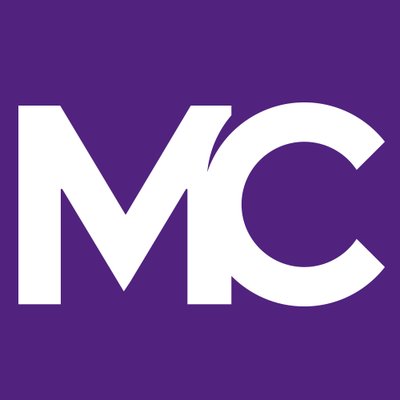ITI 481 Front-End Web Development Certification Program
Course Outline:
Course Description:
This certification program trains you to become a Front-End Certified Web Developer based on the World Wide WebConsortium (W3C) curriculum. Learn howto build beautiful, interactive websites based on the fundamentals building blocksof mobile-first web design. Learn the advanced technologies being used today to design and develop robust web-basedapplications.
Web technologies taughtinclude HTML5, CSS3, JavaScript, JQuery,XML, JSON, AJAX, and Responsive Web Design (RWD) using the leading HTML5,CSS3, and JavaScript frameworks.Students who complete the training will develop a portfolio of web-based projects designed, developed, and deployed to a live World Wide Web portfolio of their work.
Prerequisites:

Students need to complete the following Montgomery College courses or have equivalent experience.
ITI 499 - Mastering Windows Fundamentals or equivalent experience. (12 hrs)

Students are highly encouraged to complete the following LinkedIn courses after you have registered for the course.
Required Textbook & Materials
REQUIRED
- Title: MURACH'S HTML5 and CSS3
- Author: Zak Ruvalcaba and Anne Boehm
- Edition/Copyright: 4th
- Publisher: Mike Murach & Associates, Incorporated
- Published Date: March 2018
- ISBN: 978-1-943872-26-8
- Title: Murach's JavaScript & JQuery
- Author: Ruvalcaba
- Edition/Copyright: 3rd
- Publisher: Mike Murach & Associates, Incorporated
- Published Date: 2017
- ISBN 13: 9781943872053
Website: murach.com
Materials:
Please bring a Flash Drive/Memory Stick 512MB or larger to class which will enable you to save your class work.
Meeting Information:
- Days: Rockville, Mannakee Building, Lab 105
- Day: Tuesday, Wendesday, & Thursday
- Dates: 2/6/2024 - 4/16/2024
Lesson Plan:
Week 1: HTML5
Session: 1, 2 & 3
Dates: 2/6 - 2/8/2024
Learn the basic building blocks of designing and creating websites optimized for modern computers, tablets, and mobile phones using HTML5. Topics include basic HTML5 elements and attributes, including hyperlinks, images, and tables. Advanced techniques to effectively create multiple column layouts using new HTML5 structural elements. Advanced HTML5 Application Programming Interfaces (APS's) will also be covered.
Week 2: HTML5 Continued
Session: 4
Dates: 2/13/2024
Week 2: CSS3
Sessions: 5 & 6
Dates: 2/14 - 2/15/2024
Cascading Style Sheets (CSS3) styles are used to format and control placement of HTML5 elements such as rounded corners, shadow effects, and color gradients. Advanced CSS3 media queries are also covered to handle a variety of devices including screen, printer, tablet, and mobile phone; and integration of scripts into a web page. Syntactically Awesome Style Sheets (SASS) and Leaner Style Sheets (less) languages will also be covered.
Week 3: CSS3 Continued
Sessions: 7 & 8
Dates: 2/20 - 2/21/2024
Week 3: Javascript
Session: 9
Date: 2/22/2024
JavaScript is the high-level, interpreted programming language used to make webpages interactive. Alongside HTML and CSS, JavaScript is one of the three core technologies of the World Wide Web. JavaScript enables interactive web pages and thus is an essential part of web applications. All websites use it, and all major web browsers have a dedicated JavaScript engine to execute it. As a multi-paradigm language, you will learn how JavaScript supports event-driven, functional, and imperative (including object-oriented and prototype-based) programming styles. It has an API for working with text, arrays, dates, regular expressions, and basic manipulation of the Document Object Model (DOM).
Week 4: Javascript Continued
Sessions: 10, 11 & 12
Dates: 2/27 - 2/29/2024
Week 5: jQuery
Sessions: 13, 14 & 15
Dates: 3/5 - 3/7/2024
jQuery, is the industry standard JavaScript library used to add interesting, interactive features to your web site. Topics will include jQuery set-up, installation, and use; using jQuery action/reaction events; and show/hide. Learn to quickly add animations and effects, image slide shows, photo galleries, and rollovers. Add a jQuery navigation bar. Enhance and validate forms and learn other jQuery web features.
Week 6: jQuery Continued
Session: 16
Date: 3/12/2024
Week 6: XML
Sessions: 17, & 18
Dates: 3/13/ - 3/14/2024
This course is an overview of core technologies developed for defining asynchronous web capabilities. AJAX is not a single technology, but rather a group of technologies that include JavaScript, JSON and XML.
Week 7: JSON
Sessions: 19
Dates: 3/19/2024
Week 7: AJAX
Session: 20
Date: 3/20/2024
This course is an overview of core technologies developed for defining asynchronous web capabilities. AJAX is not a single technology, but rather a group of technologies that include JavaScript, JSON and XML.
Week 7: Responsive Web Design (RWD)
Sessions: 21
Dates: 3/21/2024
Topics include: layout using fluid, proportion-based grids, and flexible images. You will also develop a RWD compliant website. Frameworks to be covered include: Bootstrap and w3.css.
Week 8: RWD Frameworks
Sessions: 22, 23 & 24
Dates: 3/26 - 3/28/2024
Topics include: layout using fluid, proportion-based grids, and flexible images. You will also develop a RWD compliant website. Frameworks to be covered include: Bootstrap and w3.css.
Week 9: Capstone Project
Session: 25, 26 & 27
Date: 4/2 - 4/4/2024
The certifying event sequence listed below will be used to conduct the evaluation of courses submitted by students for Front-End Web Development Certification.Some certification events may happen immediately or may be delayed until a course is completed.







